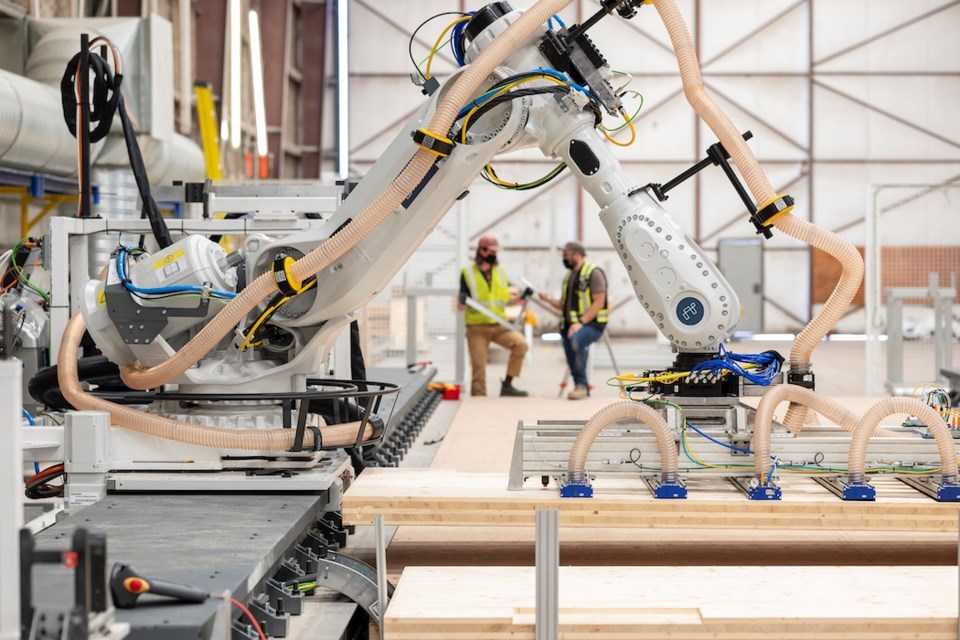A B.C. construction firm specializing in using robotics to help build homes has nailed down some fresh capital from investors.
Intelligent City Inc. announced Tuesday (July 19) it’s raised another $22 million as part of a bid to expand into new markets and grow its factory operations.
The company is best known for deploying robotics to assemble mass timber buildings geared towards mid-to-high-rise homes and offices.
Prior to 2019, building codes prevented the construction of buildings with a timber frame taller than six storeys. The only exception was the Brock Commons residential tower at UBC, completed in 2017 and built as a demonstration project for mass timber buildings.
Mass timber buildings in B.C. are now permitted to go as high as 12 storeys following the introduction of the province’s Tall Wood Initiative in 2019.
“We can't just apply this in B.C.,” Lang told BIV last fall, referring to Intelligent City’s business model.
“Our technology really needs to be scalable into other markets as well. So now we have adoption of that mass timber code in Alberta. In Quebec, it's being adopted. … In Washington, Oregon and California, there we can even go with our systems 18-storeys tall because they've adopted the International Building Code."
Intelligent City’s first factory, based in North Delta, officially opened its doors last October, paving the way for what Lang described as a more sustainable, efficient and less costly way of pursuing home construction.
“There’s a lot of waste in construction right now. There’s a waste in materials, there’s a waste of time,” Lang said, adding people wouldn’t accept it if their phones or furniture was manufactured in the sometimes-impromptu way the construction sector may fall back on.
The company’s proprietary software is integrated with Intelligent City’s design and manufacturing systems. Developers then submit a questionnaire about what they want from the building, while the software takes into consideration local building codes and regulations.
A digital twin is constructed, which vendors in the building’s supply chain can review to ensure change orders don’t plague the project.
Depending on the municipality, the entire design process may take around three months for a typical building. Intelligent City’s robotic arms are then put to work at the plant, constructing the building’s superstructure and exterior envelope enclosure to be delivered to the construction site.
The latest raise brings its total funding to $30 million.
The July funding round included participation from BDC Capital’s Cleantech Practice, Greensoil PropTech Venture, UIT Growth Equity GP and Fulmer & Co., as well as additional independent investors.



